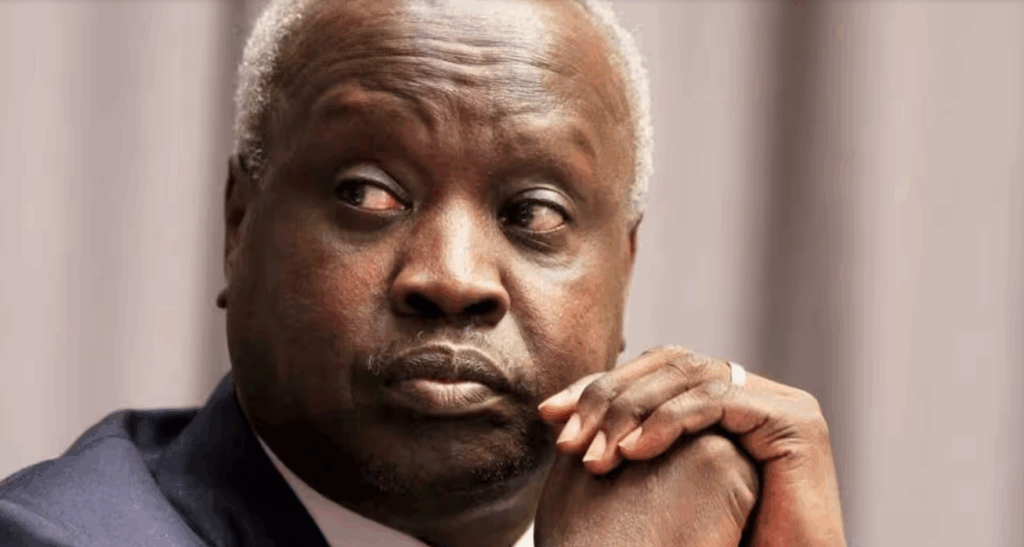Nhial Deng Nhial, a senior member of South Sudan’s ruling party, said on Wednesday he was freezing his membership and launching a new movement aimed at wresting control of the SPLM party from its current leadership, which he accused of betraying the country’s founding ideals.
In an 18-page declaration shared with Radio Tamazuj, Nhial, a member of the Sudan People’s Liberation Movement (SPLM) Political Bureau, delivered a sharp critique of President Salva Kiir’s administration, accusing it of corruption, insecurity, and a refusal to hold long-delayed elections.
The move marks a significant split within the upper ranks of the SPLM, which has ruled South Sudan since independence in 2011. Nhial’s breakaway is expected to deepen internal divisions within the party at a time of mounting political uncertainty.
The veteran politician announced the formation of the South Sudan Salvation Movement (SSSM), describing it as a “temporary vehicle” to push for reforms within the SPLM.
“The SSSM is not an end in itself. It is not intended to replace the SPLM,” Nhial said. “It is conceived as a device to steer fundamental reforms within the SPLM and bring about its total renaissance.”
He said the SSSM would operate under the United People’s Alliance (UPA), an opposition coalition led by former SPLM secretary-general Pagan Amum, and would work with other groups to pressure the government.
The UPA has been engaged in peace talks with the Kiir administration under the Kenya-led Tumaini (Hope) Initiative, which the transitional government suspended in February 2025 over disputes about its negotiating positions.
Nhial’s announcement represents one of the most high-profile defections from the SPLM during Kiir’s tenure. He cited what he called the “comatose” state of the party and warned that the country was “teetering on the brink of collapse.”
He called for a popular movement to push the government in Juba to draft a new permanent constitution and hold genuine multiparty elections before the end of 2026.
“The Juba regime is trapped in a dilemma. It cannot hold free and fair elections, for fear — and justifiably so — that it would lose them and forfeit power,” Nhial said.
The SPLM has governed South Sudan since it seceded from Sudan in 2011, but the country has been mired in conflict, economic crisis, and repeated delays to its democratic transition.
The 2018 Revitalised Agreement on the Resolution of the Conflict in South Sudan (R-ARCSS) has been only partially implemented, pushing back the timeline for national elections multiple times.
Nhial, a former minister and veteran peace negotiator, acknowledged that some might view his criticism as hypocritical after years in government.
“But now, I give you my solemn pledge that not only will I speak out, but I will also act to bring about the desired change,” he said.
Who is Nhial Deng Nhial?
Nhial has long been one of the most prominent figures within the SPLM and South Sudan’s post-independence government. He hails from Tonj in Warrap State and is the son of William Deng Nhial, a prominent politician assassinated in 1968, allegedly by the Sudanese army.
Born in 1952, Nhial began his education in Tonj before attending Comboni College in Khartoum, graduating in 1975. He was admitted to the University of Khartoum in 1976 to study law, completing his degree in 1980. He later obtained a law degree from the University of Dundee in the United Kingdom in 2008.
Fluent in English and Arabic, Nhial briefly worked with the Sudanese government after completing his studies before joining the rebel SPLM in 1983.
Although he received military training upon joining the SPLM, Nhial was not deployed as a combat field commander during the north-south civil war. Instead, he held mostly administrative and diplomatic roles.
He played a role in coordinating several informal peace initiatives, including bilateral discussions with the Sudanese government in 1989 after the fall of the civilian government led by Sadiq al-Mahdi.
In the 1990s, following the SPLM’s Chukudum Convention, which formalised civil administration in SPLM-held territories, Nhial was appointed to oversee governance in the Bahr el Ghazal region. He later resumed responsibilities in SPLM’s external affairs.
As negotiations for the Comprehensive Peace Agreement (CPA) progressed between 2003 and 2005, Nhial was part of the SPLM’s diplomatic and negotiating teams.
Following the signing of the CPA, he was appointed Minister of Regional Cooperation in the Government of Southern Sudan in 2005, but resigned just six months later, with no official explanation provided.
He returned to government in December 2008 following the death of Gen. Dominic Dim Deng in a plane crash and was appointed Minister of SPLA and Veterans’ Affairs. He remained in the role through South Sudan’s independence on July 9, 2011.
At independence, Nhial briefly served as caretaker Minister of Defence before being appointed Minister of Foreign Affairs and International Cooperation on Aug. 26, 2011. He held the post until July 2013, when Kiir dissolved the entire cabinet.
A member of the SPLM Political Bureau, Nhial later served as Senior Presidential Advisor from May 2016 until July 2018, when he was reappointed as Foreign Minister, a position he held until August 2019.
Nhial also served as the government’s chief negotiator during the early 2014 peace talks aimed at ending the conflict that erupted in December 2013. Although a peace deal was signed in 2015, it later collapsed.
He returned as chief negotiator during the talks that led to the signing of the Revitalized Agreement on the Resolution of the Conflict in the Republic of South Sudan (R-ARCSS), serving from roughly 2017 through early 2018.
In June 2020, under the Revitalized Transitional Government of National Unity (R-TGoNU), Nhial was appointed as Minister of Presidential Affairs. He served in that role until April 2021 – his last cabinet position.
Nhial also led the government delegation in Rome-based peace talks with the opposition coalition SSOMA in 2020, shortly after he was sworn in as presidential affairs minister. He held the post until his replacement in 2021.




